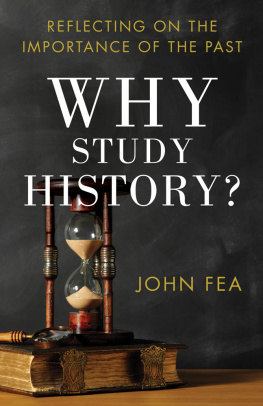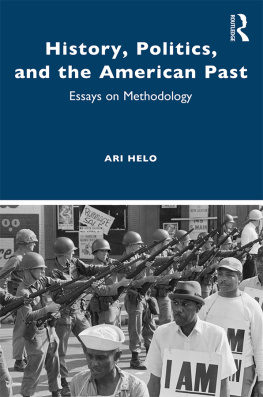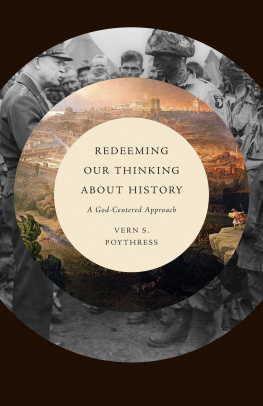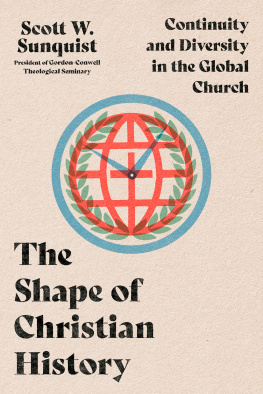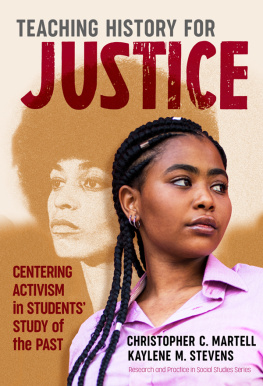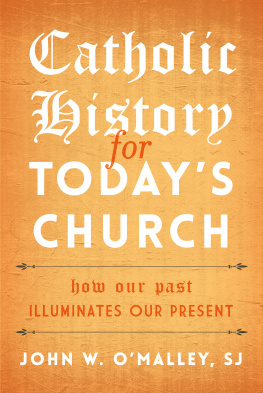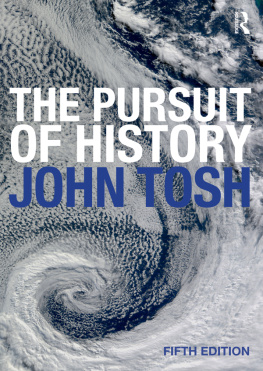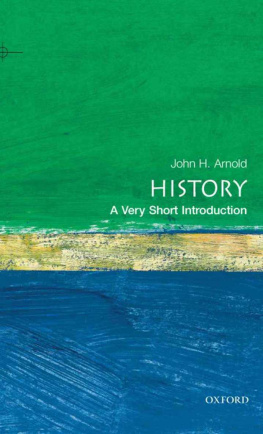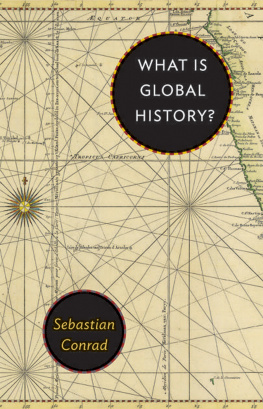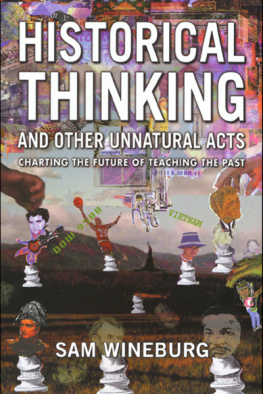2013 by John Fea
Published by Baker Academic
a division of Baker Publishing Group
P.O. Box 6287, Grand Rapids, MI 49516-6287
www.bakeracademic.com
Ebook edition created 2013
All rights reserved. No part of this publication may be reproduced, stored in a retrieval system, or transmitted in any form or by any meansfor example, electronic, photocopy, recordingwithout the prior written permission of the publisher. The only exception is brief quotations in printed reviews.
Library of Congress Cataloging-in-Publication Data is on file at the Library of Congress, Washington, DC.
ISBN 978-1-4412-4455-0
Unless otherwise indicated, Scripture quotations are from the Holy Bible, New International Version. NIV. Copyright 1973, 1978, 1984, 2011 by Biblica, Inc. Used by permission of Zondervan. All rights reserved worldwide. www.zondervan.com
Scripture quotations labeled ESV are from The Holy Bible, English Standard Version (ESV), copyright 2001 by Crossway, a publishing ministry of Good News Publishers. Used by permission. All rights reserved. ESV Text Edition: 2007
Scripture quotations labeled NKJV are from the New King James Version. Copyright 1982 by Thomas Nelson, Inc. Used by permission. All rights reserved.
Contents
Cover
Title Page
Copyright Page
Acknowledgments
Prologue
1. What Do Historians Do?
2. In Search of a Usable Past
3. The Past Is a Foreign Country
4. Providence and History
5. Christian Resources for the Study of the Past
6. History for a Civil Society
7. The Power to Transform
8. So What Can You Do with a History Major?
Epilogue: History and the Church
Appendix: A Proposal for the Center for American History and a Civil Society
Subject Index
Notes
Back Cover
Acknowledgments
A S ALWAYS , I OWE A GREAT DEBT OF GRATITUDE TO MY students. Much of what I have written here has been forged through conversationsin the classroom and outwith the bright young minds that come to Messiah College to study history. I dedicate this book to them. My Messiah College undergraduate research assistants continue to shine. Tara Anderson, Natalie Burack, and Amanda Mylin tracked down books and articles, making my research much easier. Katie Garland not only provided invaluable research support, but she also assembled the original book proposal. She is well on her way to a stellar career as a public historian. Megan Sullivan edited the page proofs. Upon hearing Megan reading the manuscript aloud in a room adjacent to my office, I realized that my thoughts on historical thinking had become a book. The students enrolled in my Introduction to History and Historical Methods classes in fall 2012 read drafts of several chapters and discussed them with me in class.
I have presented my ever-evolving thoughts on the importance of historical thinking to several audiences over the past few years. Thanks to the Messiah College history department (where I delivered the inaugural Faith and History Lecture in 2010), the Center for Applied Christian Ethics at Wheaton College (especially its director, Vince Bacote), the Center for Vision and Values at Grove City College (especially Paul Kemeny and Steven Jones), and St. Peters United Methodist Church in Ocean City, New Jersey (especially pastor Brian Roberts) for the invitations to speak. Jay Green of Covenant College provided helpful remarks on an earlier version of chapter 7. I am also grateful to the history faculty at Woodberry Forest School who provided stimulating conversation on many of the ideas covered in this book and to the hundreds of history teachers across the nation with whom I have had the privilege of sharing my thoughts on historical thinking through my work with the Gilder-Lehrman Institute of American History.
Thanks to Touchstone magazine for permission to adapt parts of chapter 4 from my essay Thirty Years of Light and Glory and to Jared Burkholder, David Cramer, and Pickwick Press for permission to borrow material for chapter 7 from an essay I wrote in The Activist Impulse: Essays on the Intersection of Evangelicalism and Anabaptism .
My family, as always, has been supportive of my writing and historical work. Carmine Fea offered me a week at her house in the north woods of New Hampshire that allowed me to complete the first draft of this book. My parents, John and Joan Fea, remain curious and encouraging about all of my projects. And Joy, Allyson, and Caroline (who promised me a Reeses Peanut Butter Cup when I finished the last two thousand words) continue to remind me what is most important in life.
Prologue
E VERY FALL I WALK INTO A LARGE LECTURE HALL FILLED with students for the first day of History 141: United States History Survey to 1865. Over the years, this course has become the bread and butter of my job as an American history professor. Students enroll in it to fulfill a general education requirement, and thus, for many of them, it will be the only history course that they take during their four-year college experience. A large percentage of them do not want to be there. They would rather be taking a more specialized course in their individual majors. But from where I stand in the cavernous surroundings of the tiered classroom, I realize that this will be the only chance I get to convince them that the study of history is important to their lives as citizens, Christians, and humans. My approach to the course is something akin to evangelism. Every now and then, I will get a converta student who decides to become a full-fledged history majorbut in the end I am happy if, at the end of the semester, students have developed an appreciation for the past and how it has shaped their lives.
For many history professors in American colleges and universities, the United States survey course is something to avoid. They prefer to teach advanced classes in their areas of expertise. These courses take them out of the lecture hall and into the seminar room, complete with its long table and more relaxed atmosphere. Such courses are populated not by students trying to fulfill a general education requirement but by the advanced history majors who have signed up for the class presumably out of a love for the subject. These kinds of courses are fun to teach, but History 141 remains my favorite. If for whatever reason I could no longer teach it, my pedagogical life would be less satisfying. I guess you could say that I am more of an evangelist and a preacher than a pastor and teacher.
A few Septembers ago I was chatting informally with a first-year student about how he was adjusting to his initial week of college classes. He observed that every professor in every course he was taking spent the first or second day of the semester delivering what he called a What Is lecture. After probing some more, I realized that the student had coined this phrase to describe the lecture that most professors give to general education students to introduce them to a particular field of study. This student said he had just sat through a week of lectures with titles such as What Is Physics?, What Is Sociology?, and What Is Philosophy? If you are a professor, I am sure you know exactly what this student meant. In History 141, I always devote some time to a What Is History? lecture. During this lecture, I get my students acquainted with the basics of the field, such as the difference between a primary and secondary source, the meaning of the word historiography , and the ways historians practice their craft. I talk briefly about how the past speaks to the present and how it is also a foreign country, where people tend to do things differently than we do today. And since I am a Christian who teaches history at a Christian college, I get the privilege of exploring questions about the integration of faith and historical thinking. What kinds of resources are available in the Christian tradition to help us gain a better understanding of the past? What is providential history, and why will it not play a role in the course?

